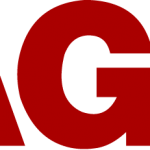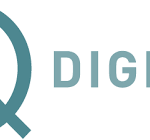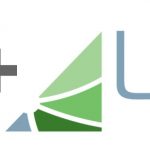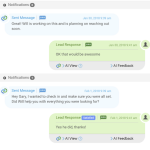Veritas Buys Curoverse to Bring A.I. Analysis of Genes to the Masses

Some answers to questions about the risk of developing a disease or a bad reaction to a drug can be found by analyzing a patient’s genes. In the not-too-distant future, such queries could be as easy as searching for and selecting a movie on Netflix, contends Rodrigo Martinez, chief marketing and design officer for Veritas Genetics.
Veritas, a Boston startup, has already made genetic analysis more affordable by bringing the cost of whole genome sequencing below $1,000. But to reach the future that Martinez envisions, the company needs the capability to go beyond the hundreds of genomes it now sequences each month, and scale its analyses to hundreds of thousands of genomes, and eventually millions. To achieve those goals, Veritas is acquiring Curoserve, another Boston startup that has developed software to store, manage, and analyze genomic data.
According to the deal, Curoverse will continue operating as an independent subsidiary of Veritas. No financial terms were disclosed for acquisition, which was announced today. But the deal follows other merger moves in genetic testing and analysis. On Monday, San Francisco-based gene testing company Invitae (NASDAQ: NVTA) announced two acquisitions to add genetic screening capabilities for newborns and parents-to-be.
Veritas and Curoverse share common origins. Both were co-founded by George Church, the Harvard University geneticist whose research has been the basis for numerous companies. Curoverse came before Veritas, emerging from the Personal Genome Project at Harvard in 2012. Martinez says that the scientists who formed Veritas two years later were familiar with Curoverse’s technology because they used it at Harvard.
Curoverse’s technology platform is called Arvados. The open-source system enables users to store and manage data, and then use artificial intelligence and machine learning techniques to analyze it. Other companies offer ways for customers to store genomic data and interpret it, such as Mountain View, CA-based DNANexus, and Belmont, CA-based Bina Technologies. But Martinez says most companies that are generating, storing, and managing genomic data are doing it behind walls. They’re working with different software platforms that make it hard to share information.
As an open source system, Arvados is free for scientists and companies to use, and it allows users to openly share information. Curoverse generates revenue from users who hire the company to set up the system and run it for them. That’s the arrangement that Curoverse has with some pharma companies. Publicly disclosed users of Arvados include the Wellcome Trust Sanger Institute and IBM Watson. Curoverse projects that it will manage more than 10 petabytes of genomic data this year.
Martinez says that Curoverse complements the whole genome sequencing offered by Veritas. Veritas can now screen 40,000 genes for more than 1,200 medical conditions. Other services include screening for drug sensitivities, the potential to pass on inherited disorders, and the genetic predisposition to certain cancers. Last October, Veritas raised $30 million to finance the development of new tools as well as a commercial push to sign on more customers.
Veritas provides its service to research institutions and physicians, though the company also markets to consumers. A consumer who wants his or her genome sequenced needs a physician’s authorization. But rather than offering genomic analysis as a one-time transaction, Veritas aims to make it a service that patients can return to time and again. The onset of a disease in a family member could prompt a patient to want to learn more about his or her predisposition to that condition, Martinez says. Or a patient might have questions about potential interactions with a new drug.
Veritas has not yet ironed out all the details of how it will offer its service to consumers. In one test, Amazon’s virtual assistant Alexa answered a patient’s dosing questions about a drug. Regarding the financial details, Martinez says the company decided early on that it would not build its model around insurance reimbursement, which introduces complexity for both Veritas and patients. Instead, the company is trying to push the cost of genomic sequencing down to a point where consumers will see value in paying it out of pocket.
The $999 price that Veritas now charges for sequencing could fall by half in a few years, Martinez says. At that price, the service could become a subscription and Veritas could become the “Netflix of genomics,” as patients turn to genomic analysis as they choose or according to their changing circumstances. Martinez says these offerings could become available within the next three years.
“We are making significant investments in engaging people, not just selling them a test,” Martinez says. “When you sequence a genome, it is a resource for life.”
Photo by Flickr user Caroline Davis2010 via a Creative Commons license.
Frank Vinluan is editor of Xconomy Raleigh-Durham, based in Research Triangle Park. You can reach him at fvinluan [at] xconomy.com Follow @frankvinluan
(25)













